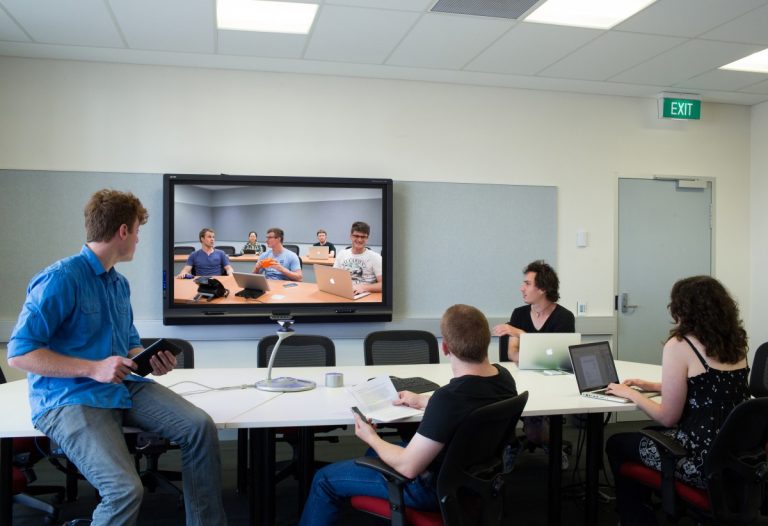
With today’s high-demand for software solutions and data analysis, we now see science and technology as essential to our everyday lives. Computers and software surround us in the form of business databases, financial systems and online games. In order to gain a competitive advantage in the workplace, it’s essential that we understand how these technological advancements function.
The beauty of science is knowing that the enrichment of knowledge you’ll gain knows no borders, allowing us to get to grips with systems that are used to analyse and understand facts.
When you consider things we interact with most throughout our everyday lives, the majority probably didn’t exist ten, maybe even five years ago. It’s fair to say that most of these developments have been powered by software advancements. Here, technology is the core ingredient when it comes to improving solutions – especially in a society that seeks constant speed and convenience.
Modern heavyweights like Uber and Airbnb, for example, probably owe large parts of their success to the humble computer science graduate, whose current and specialised expertise have revolutionised the consumer experience.

“The rise of Google, the rise of Facebook, the rise of Apple, I think are proof that there is a place for computer science as something that solves problems that people face every day,” says Eric Schmidt, an American software engineer.
From infrastructure to medicine and from energy through to information technology itself, our global sectors would not progress without today’s technology-rich facilities. These factors have become so deeply ingrained in our lives and daily functions, countries are even classified as a developed or developing based on factors like economy and the application of science and technology.
But what about education – can you imagine how effective contemporary school systems would be without the influence of computer software and the internet? The computer science field has literally transformed the academic world, empowering modern students through the development of learning apps and online class delivery that gives students the chance to learn anywhere, at any time.
Computer Science represents a high-flying college degree, with computer-programming roles evolving at two times the national average. With the rise of the digital age comes a need to develop logical thought processes and problem solving skills – which all form an integral part of the computer science curriculum.
According to the Bureau of Labour Statistics, Computer Science jobs are rapidly flourishing, with experts predicting an increase of 12 percent by 2024 – much faster than the average rate of growth for most occupations, which currently stands at just seven percent. These skyrocketing figures demonstrate the exciting opportunities that come with selecting a computer science degree.
Here are 3 schools that excel in Computer Science disciplines…
SCHOOL OF SCIENCE AND TECHNOLOGY, UNIVERSITY OF NEW ENGLAND (UNE)

Whether you want to create the systems of the future, or discover and analyse the world through data, UNE’s undergraduate and postgraduate degrees in Computer Science, Information Technology, and Data Science prepare you to be one of the innovators in this technology-driven world.
UNE boasts a beautiful and unique location, in leafy New England, Australia, but also has a global student network who study and collaborate online, including many who are already working in industry.
But UNE does not just study the future – it builds it. Researchers at the Data Transformation Hub have been working to create commercial platforms for data science and predictive analytics for the agricultural industry, as well as for science.
With professional skills and authentic design experiences embedded throughout its technology courses, UNE are committed to modern, technically-capable, and collaborative teaching.
As Jeremy Collette, UNE Computer Science student explains, “The college…provide[s] many opportunities for self-development through various leadership positions, such as being part of the social committees or becoming a Resident Fellow or Academic Mentor.
“I’ll be doing a software engineering internship at Dolby Laboratories over the summer, which will be my first taste of working at a big software company,” the student adds. “My dream job is to work in Tokyo, which I’m hoping to do sometime in the future.
SCHOOL OF SCIENCE AND ENGINEERING, CURTIN UNIVERSITY
Curtin University welcomes students who have a passion for Science and Engineering, championing those who not only want to be a part of the growing world, but want to make a difference as well.
This school offers an energetic campus life, complete with a wealth of internship opportunities, aesthetically-pleasing buildings (e.g Curtin Engineering Pavilion complex), and unique teaching methods that prepare you for your career of choice.
As Western Australia’s largest and most culturally-diverse university, students here benefit from a range of different perspectives and outlooks. Courses like the Master of Predictive Analytics, where growing sets of data obtained by scientists are closely examined, draw students from all corners of the globe, spurred by the promise of elite teaching methods and outstanding graduate prospects. Being the only Masters of its kind in the country, the syllabus requires students to be disciplined to reach certain industries like engineering, management, business and finance.
Here, students also get the chance to learn outside the classroom, working alongside organisations and industries alike. The school has formed previous collaborations with the likes of Innovation Central Perth and the Curtin Institution for Computation.
DEPARTMENT OF COMPUTING, HONG KONG POLYTECHNIC UNIVERSITY (HKPOLYU)

The Department of Computing at HKPolyU is home to one of the oldest and largest computing educations the region has to offer. It’s a prime choice for locals and international students looking obtain a globally-respected postgraduate degree, with the program using technology and fundamental theory to gain top results. The concepts of active collaboration and experimentation are just two of many innovative methods for which the university has been praised.
HKPolyU also offers students the MSC in Information Technology, serving those who may not have come from a direct computing background. Armed with a pre-existing knowledge of the Science and Engineering disciplines, students can easily build a strong foundation on the core concepts and expertise of IT through problem solving activities and various independent projects.
The MSC in IT likes to touch on and explore current trends in information technology, including mobile technology, software engineering, artificial intelligence, wireless computing, and big data.
*Some of the institutions featured in this article are commercial partners of Study International








